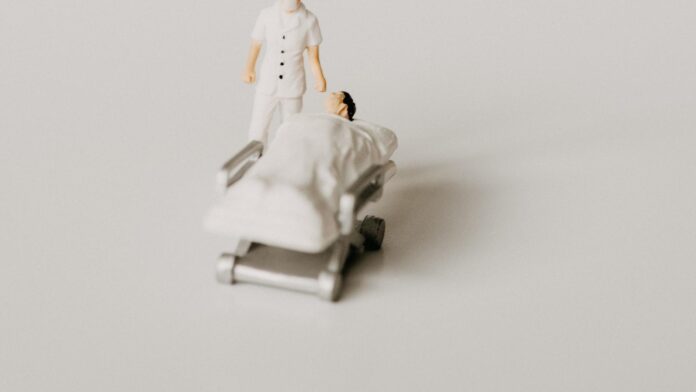
Sleep apnea is a common and potentially serious sleep disorder in which breathing repeatedly stops and starts during sleep. It can occur when the throat muscles and tongue relax and block the airway, causing a person to snore loudly and gasp for air. Sleep apnea can lead to a variety of symptoms that can have a significant impact on a person’s overall health and well-being.
In this article, we will explore the symptoms of sleep apnea and how they can be identified and managed. By understanding the signs of sleep apnea, individuals can seek appropriate treatment and improve their quality of life.
1. Loud Snoring
Loud, persistent snoring is often the most noticeable symptom of sleep apnea. While snoring can be common in many individuals, it may be a cause for concern if it is extremely loud and disruptive. This snoring is often accompanied by periods of silence followed by gasps or choking sounds as breathing resumes.
If you or a loved one has been experiencing loud, chronic snoring, it is important to consult a healthcare professional to rule out sleep apnea as a potential cause.
2. Gasping for Air During Sleep
Another common symptom of sleep apnea is the sensation of choking or gasping for air during sleep. This may occur as a result of the airway becoming blocked and hindering normal breathing patterns. Individuals who experience this symptom may wake up feeling short of breath and anxious.
If you find yourself gasping for air during sleep, it is crucial to seek medical advice to identify the underlying cause and receive appropriate treatment.
3. Daytime Fatigue and Sleepiness
Experiencing excessive daytime fatigue and sleepiness is a common symptom of sleep apnea. This is due to the disrupted sleep patterns and oxygen deprivation that accompany the condition. Individuals with sleep apnea may struggle to stay awake during the day, even after a full night’s sleep, and may feel irritable or unable to concentrate.
If you regularly feel fatigued and sleepy during the day, despite spending enough time in bed, it is advisable to discuss this symptom with a healthcare provider to explore the possibility of sleep apnea.
4. Waking Up with a Dry Mouth or Sore Throat
Individuals with sleep apnea may often wake up with a dry mouth or a sore throat. This can occur as a result of breathing through the mouth while the airway is obstructed, leading to dryness and irritation. These symptoms can significantly impact an individual’s comfort and quality of sleep.
If you frequently wake up with a dry mouth or sore throat, especially in combination with other sleep apnea symptoms, it is important to seek medical advice for a proper evaluation and treatment plan.
5. Morning Headaches
Sleep apnea can also cause morning headaches, which may be persistent and intense. This is often the result of oxygen levels decreasing and rising abruptly during the night, leading to changes in blood flow and an increased risk of headaches upon waking.
If you experience frequent morning headaches that do not seem to have a clear cause, it is important to consider the possibility of sleep apnea and consult a healthcare professional for further evaluation.
6. Difficulty Concentrating and Memory Problems
Sleep apnea can have a significant impact on cognitive function, leading to difficulties with concentration, memory problems, and a decrease in overall mental sharpness. This can affect an individual’s performance at work or school and their ability to carry out daily tasks effectively.
If you have been experiencing difficulties with concentration and memory, despite getting sufficient sleep, it is advisable to discuss these symptoms with a healthcare provider to investigate the potential link to sleep apnea.
7. Mood Changes and Irritability
Individuals with sleep apnea may experience mood changes, such as irritability, depression, or anxiety. This can be attributed to the impact of disrupted sleep on emotional regulation and overall mental well-being. Changes in mood and emotional stability can significantly affect a person’s relationships and overall quality of life.
If you have noticed significant changes in your mood and emotional well-being, it is essential to seek professional help to determine whether sleep apnea may be a contributing factor and to explore appropriate treatment options.
8. Night Sweats
Experiencing night sweats, where an individual wakes up with damp or sweaty clothing and bedding, can be a symptom of sleep apnea. The body’s response to the struggle for breath and oxygen deprivation during sleep may lead to excessive sweating and discomfort.
If you have been experiencing frequent night sweats, it is important to consider the possibility of sleep apnea as a potential cause and to seek medical advice for an accurate diagnosis and treatment plan.
9. High Blood Pressure
High blood pressure, or hypertension, is often associated with sleep apnea due to the strain that the condition places on the cardiovascular system. The intermittent drops in oxygen levels and increased heart rate during sleep can contribute to elevated blood pressure levels over time.
If you have been diagnosed with high blood pressure or are experiencing symptoms such as dizziness or palpitations, it is important to explore the potential link to sleep apnea and seek appropriate medical guidance.
10. Decreased Libido and Sexual Dysfunction
Sleep apnea can also impact sexual health and libido, leading to decreased interest in sexual activity and potential difficulties with arousal or performance. The fatigue and hormonal imbalances associated with sleep apnea can contribute to a decline in sexual function and overall satisfaction.
If you have noticed a significant decrease in libido or are experiencing sexual dysfunction, it is important to address these concerns with a healthcare professional to explore potential underlying causes, including sleep apnea.

















